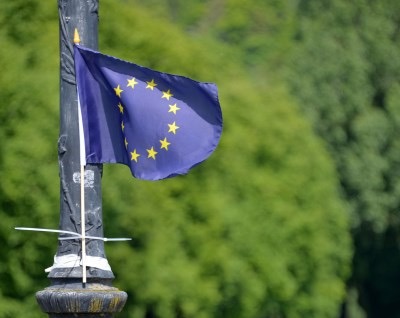While the daily news is dominated by the coronavirus crisis, not much attention is being given to the story which would have dominated the news agenda without it. Britain is heading for the no-deal Brexit cliff-edge again, and this time it seems that nothing can stop it. This will seriously damage the British economy, hurt jobs and wages, and reverse the long term growth in the Gross Domestic Product.
Boris Johnson's government may calculate that GDP is about to fall so substantially anyway, because of the coronavirus lockdown, so any hit to the GDP from a no-deal Brexit may seem small in comparison. On the other hand this may not be the right time to be loading more straws onto the camel's back.
Yet unlike in articles I wrote on this subject a year ago, I do not think the major fault lies with the British Government. This huge failure in statecraft lies at the door of the European Union. It continues to believe that the vote to leave the EU in 2016 was nothing more than a perverse emotional spasm based on lies. Hence European bureaucrats treat it as below their dignity to take it seriously.
In fact "take back control" was an entirely legitimate aspiration. It placed national sovereignty above European integration. Some thought that was misguided and I was inclined to agree; but that does not make national sovereignty, per se, a bad thing. It is a choice the British people were entitled to vote for.
Meanwhile there is a flaming row over this very issue now going on between Germany and the EU, after the German supreme court ruled that it took precedence in German law over the judgements of the European Court of Justice. This is a battle Brussels cannot win. Behind that jurisdictional quarrel lies an even more fundamental threat to the European project. Germany resents what is sees as an attempt by the EU to make the more prosperous part of the Continent, the north (predominantly Germany itself), subsidise its less thrifty and industrious southern part, in this case mainly Italy but also Spain.
This inequality has been made much worse by the pandemic. But what has happened to European solidarity, the EU's bedrock idea? It does look convincingly that the nation state is back in business across Europe, with borders with neighbours being closed, travel cancelled, and inter-European trade almost at a standstill. And there is no agreed and united EU-wide response to the virus. It has been left to individual governments to handle as best they can. Maybe anything else was an impossibility. The coronavirus epidemic has a way of ignoring the subtleties of international politics. We are in this together. But separately.
The forthcoming breakdown in post-Brexit trade talks with the EU arises from this fundamental conflict between sovereignty and economic integration. In return for a free trade agreement, says Brussels, Britain must sign up to a level playing field designed to prevent unfair competition. This is designed to stop British manufacturers undercutting, say, Swedish manufacturers by, for instance, lowering health and safety standards in their factories, making their goods cheaper.
Britain says it has no intention of lowering its standards below those of Sweden or anywhere else, but that is its choice to make. British manufacturers must be subject to British law, not European Law: the ultimate authority in interpreting the rules must lie with the United Kingdom Supreme Court, not the European Court of Justice. And that is fundamentally what "take back control" was about. The logic of that is inescapable. Yet Brussels seems to be in denial. Partly this is lack of trust. They see Boris Johnson as a man without principles. But partly it is a refusal to face post-Brexit reality.
This is where that particular chess game has got to. But it is not the only show in town. In another adjacent room another game is being played out, between Britain and the United States. That is also about negotiating a free trade agreement. But the boot is on the other foot. Freeing up agricultural exports to Britain is the big prize for the US in those talks. American animal welfare and factory health and safety standards are lower than in Britain, so their goods tend to be produced more cheaply.
But it is our sovereign choice to have those higher standards, and hence to pay more for our food. No, says the US, free trade trumps - (now there's a word!) - sovereignty, or at least British sovereignty. There is no likelihood of the American food industry wanting to sign up to Britain's higher standards. US sovereignty is not negotiable. America First is the motto of the Trump government, and free trade is a means for securing American economic dominance. America has lost interest in globalisation and turned towards protectionism. It has also turned towards economic Darwinism - survival of the fittest. If that means the death of British agriculture, to Make America Great Again, then so be it.
Boris Johnson's bold strategy for Britain after Brexit was to be a leading player in breaking down the barriers to free trade. But in both directions, the EU and the US, national sovereignty stands in the way. In other words there was a basic tension between "take back control" and free trade. The more you have of the one, the less of the other. But so far, as we have seen, take back control captures the imagination, free trade does not. So both the trade talks with the US and the trade talks with the EU are likely to lead nowhere.
They stem from a different era anyway. The mood has changed. Nine months from now, a no-deal Brexit may be the least of our worries. And as the Germans realise what is at stake in their battle with Brussels, Gerxit will be boiling over.



 Loading ...
Loading ...
What do you think?
You can post as a subscriber user ...
User comments (0)